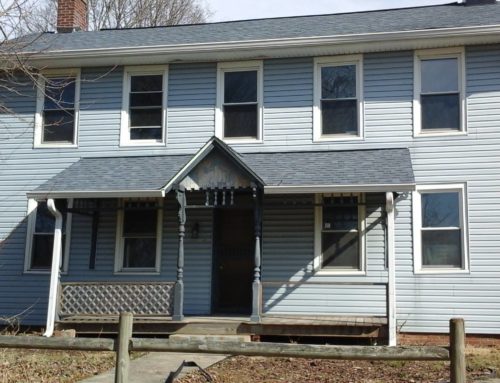Buying a home is a very exciting milestone, but how do you know you’re buying the right home? Here are 20 questions to ask before buying a home.
20 Questions to Ask Before Buying a Home
Can I afford this?
Before you get too carried away in the home buying process, you need to take a very serious look at your finances and make sure you are ready for the financial responsibility of home ownership. Beyond the mortgage, there is routine maintenance, homeowners insurance, property taxes; just to name a few. This article does a great job of breaking down the hidden costs you’ll want to consider before making the decision to purchase.
How old is the roof?
You’ll know the condition of your roof based on the home inspection but knowing the age of your roof will help you make an educated guess on when you’ll need to replace it. If you have an estimated timeline for replacement, you can start saving for this multi-thousand dollar repair in advance.
Is there a history of pest infestations?
It is good to know if the house has a history of termites. This information allows you to be a little more thorough with the home inspection, making sure any damage is repaired prior to selling. It also helps with prevention. If you know that the home has a recurring ant problem, you can make sure you have preventative pest control in place.
Do the windows need to replaced?
Like the roof, replacing windows can be a very costly upgrade. Replacing windows can cost anywhere from $300-$700 per window!
What is the neighborhood like?
Try driving the neighborhood at night. Do you feel safe? Do you like the atmosphere? Many regret not having a greater understanding of the dynamic of their neighborhood prior to buying. Don’t be afraid to ask prospective neighbors what they think about the neighborhood as well. Ask them what they love and what they wish they could change. You’ll get a lot more information from neighbors than you will from a listing flier.
How are the school rankings?
If you’re newly married, the need for quality schools may seem unnecessary. However, keep in mind that there may be a time in your future when the school system in which your neighborhood empties will be of great importance to you.
How does this location affect your commute?
If you’re used to a 10-minute drive to the office, a 45-minute drive from your new home could prove to be quite stressful. Make sure you factor in how the purchase of this house will affect you. Will it increase your commute, change your grocery store or frequented restaurants? It’s wise to know going into a home purchase whether you’ll need to change where you grocery shop or eat out.
Is it a noisy neighborhood?
It might be good to find out if the neighborhood is noisy. Learn if neighbors shoot off fireworks for the fourth of July. Take note of how far your house is from the main traffic.
What is the neighborhood crime rate?
You want to feel safe in your neighborhood. This article provides 5 ways to know whether your neighborhood is safe.
When was the last time there was a mold inspection?
This is very important especially if there is a moldy odor but also if there are no visible signs of mold.
Has the house been tested for radon?
According to the Department of Health and Human Services, 1 in 15 homes have high levels of radon. Radon can cause cancer. Ask for testing results or test yourself. The test is relatively inexpensive.
Are there any weird odors?
Make sure there are no weird odors that may be signs of bigger problems like water damage or a dead animal in the walls. If a room smells a little off, investigate it.
Will the appliances need to be replaced?
Learn the ages of the appliances. If they are all 10 years or older, chances are you will need to replace all of them within 6-12 months. That can be a costly investment if you weren’t prepared to replace the refrigerator, dishwasher, and stove all in the same month.
What are the natural disasters common to the area and is the house structurally prepared?
If you’re coming from out of town or out of state, do some research on the naturally occurring disasters that are common in the area. A house could be a steal of a deal but located right in the middle of flood plains. Are you prepared for the constant risk of flooding? Do your research and know what you are up against.
What repairs are needed?
It’s so easy to fall in love with the charm of a home and miss that the point of a fixer upper is to fix it up. There is a bit of fun that comes along with a house that needs a lot of repairs. Just be sure you are financially, physically and emotionally prepared to tackle those repairs by knowing exactly what you’ll need to repair or upgrade.
What are the monthly utility costs?
Knowing the cost of utilities might not make you change your mind about a purchase but it will help you with your budget!
Does the exterior of the house meet your needs?
It is easy to get swept away by the interior of a home but consider the exterior as well. Is the yard large enough for your needs? Do you have enough parking space for vehicles? Consider your needs and determine whether the property can meet them.
Does the home have a safe space?
If your house is a disaster prone area, a safe space is really important. If it doesn’t have one, you may want to build one.
Are there signs of busted pipes or damage?
A busted pipe can take a while to show itself and, by then, the damage is extreme. Take a close inventory of all pipes. If you find water spots on the ceiling, ask when it happened and what was the cause.
Can I see myself living here for years?
You can mark everything off this checklist but if you can’t see yourself in the house, it’s not worth it. Make sure you love the home you’re buying.
Buying a home can be a lot of work. Selling a home, however, can be a painless and quick process if you sell your home to Ben. He purchases homes in the Indianapolis area. Check out what this client had to say about her experience.





